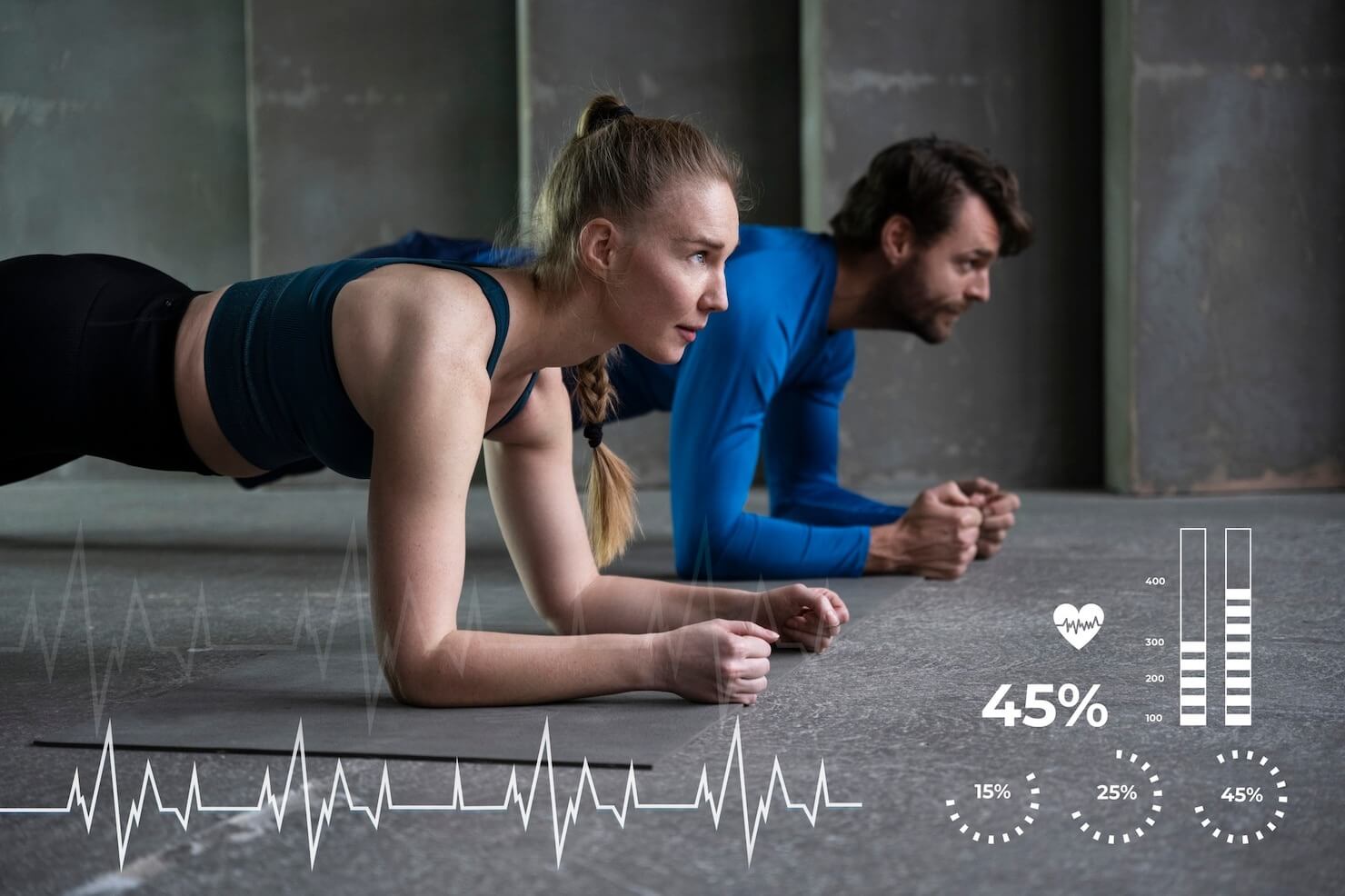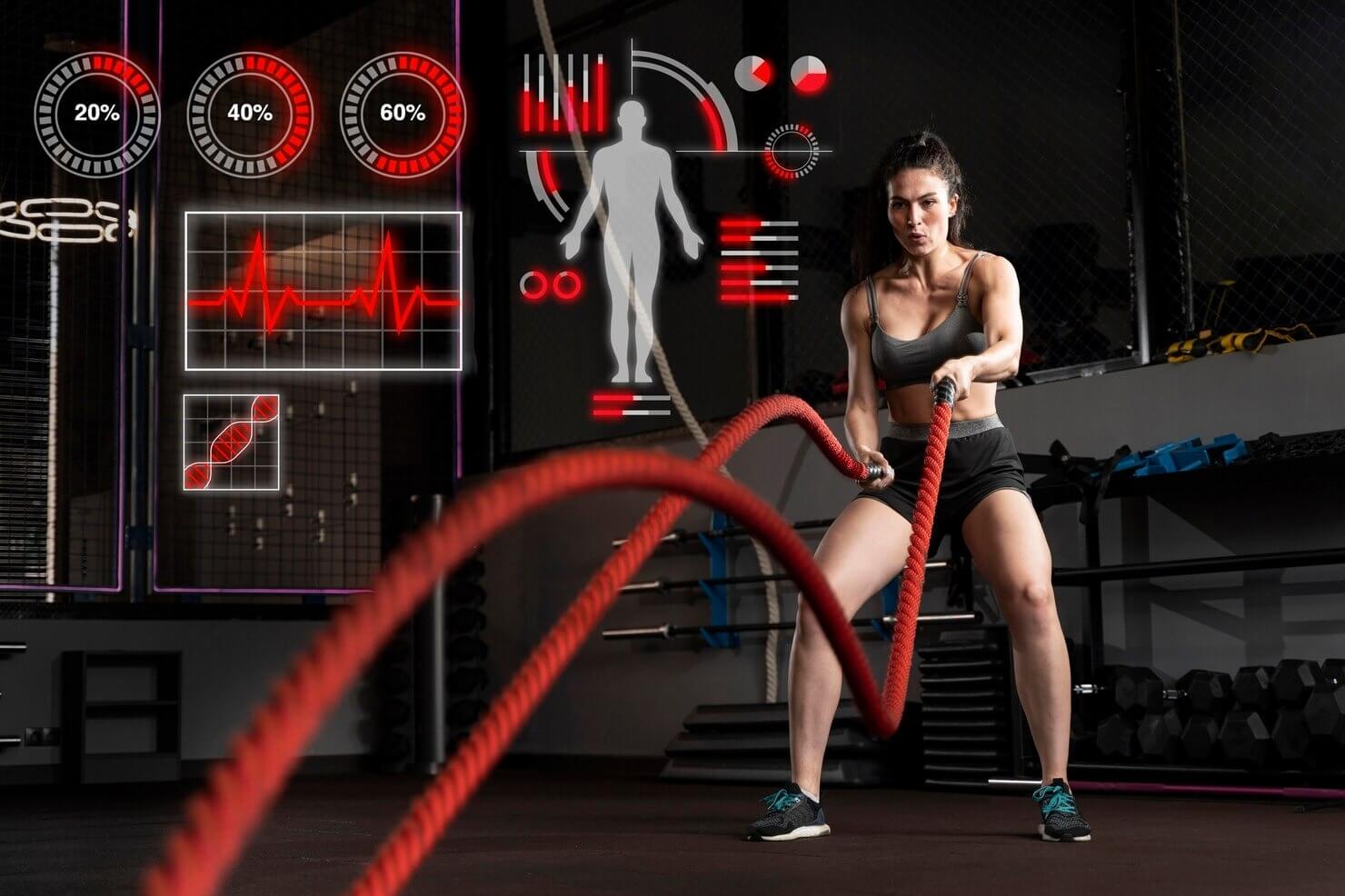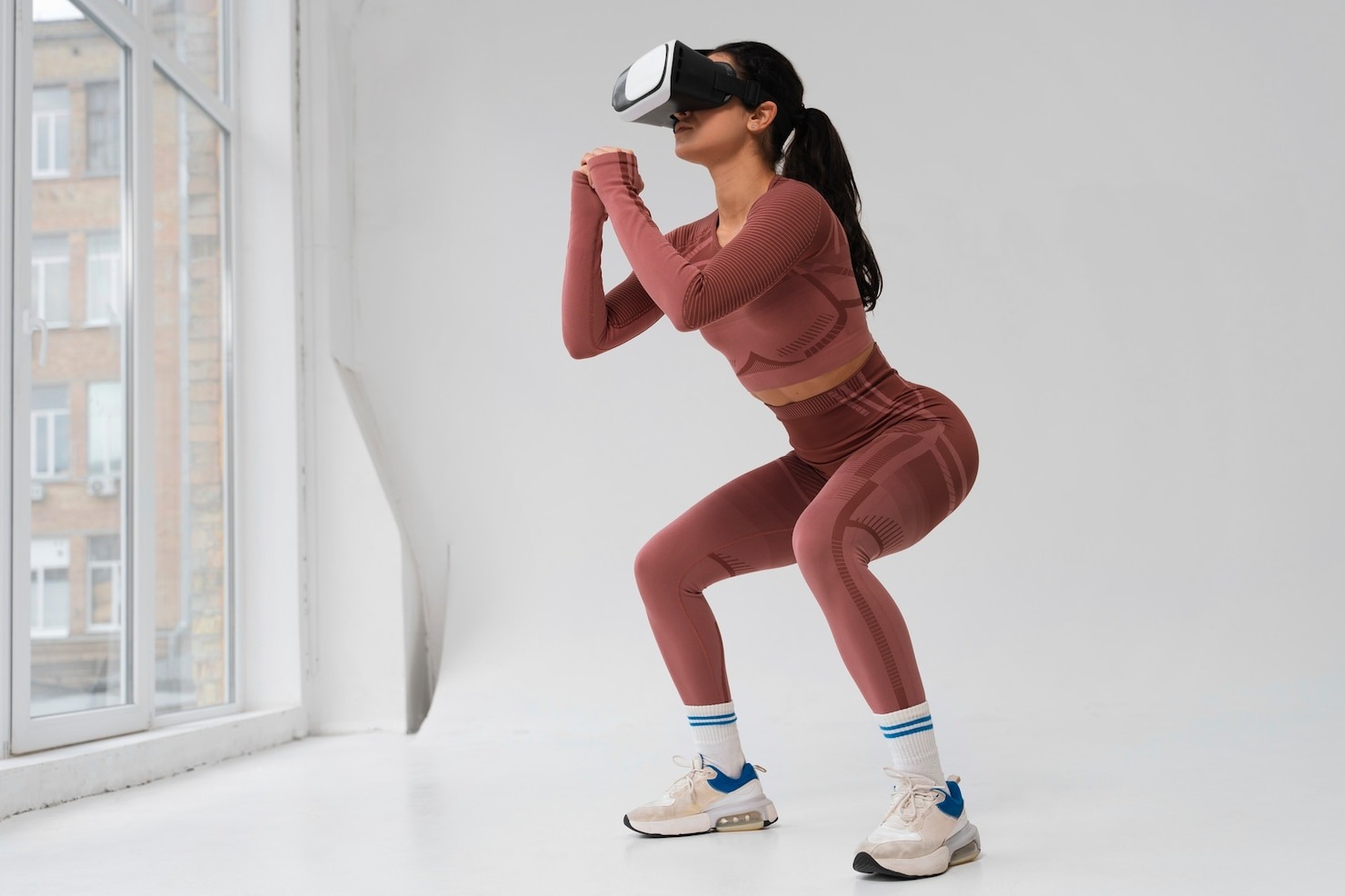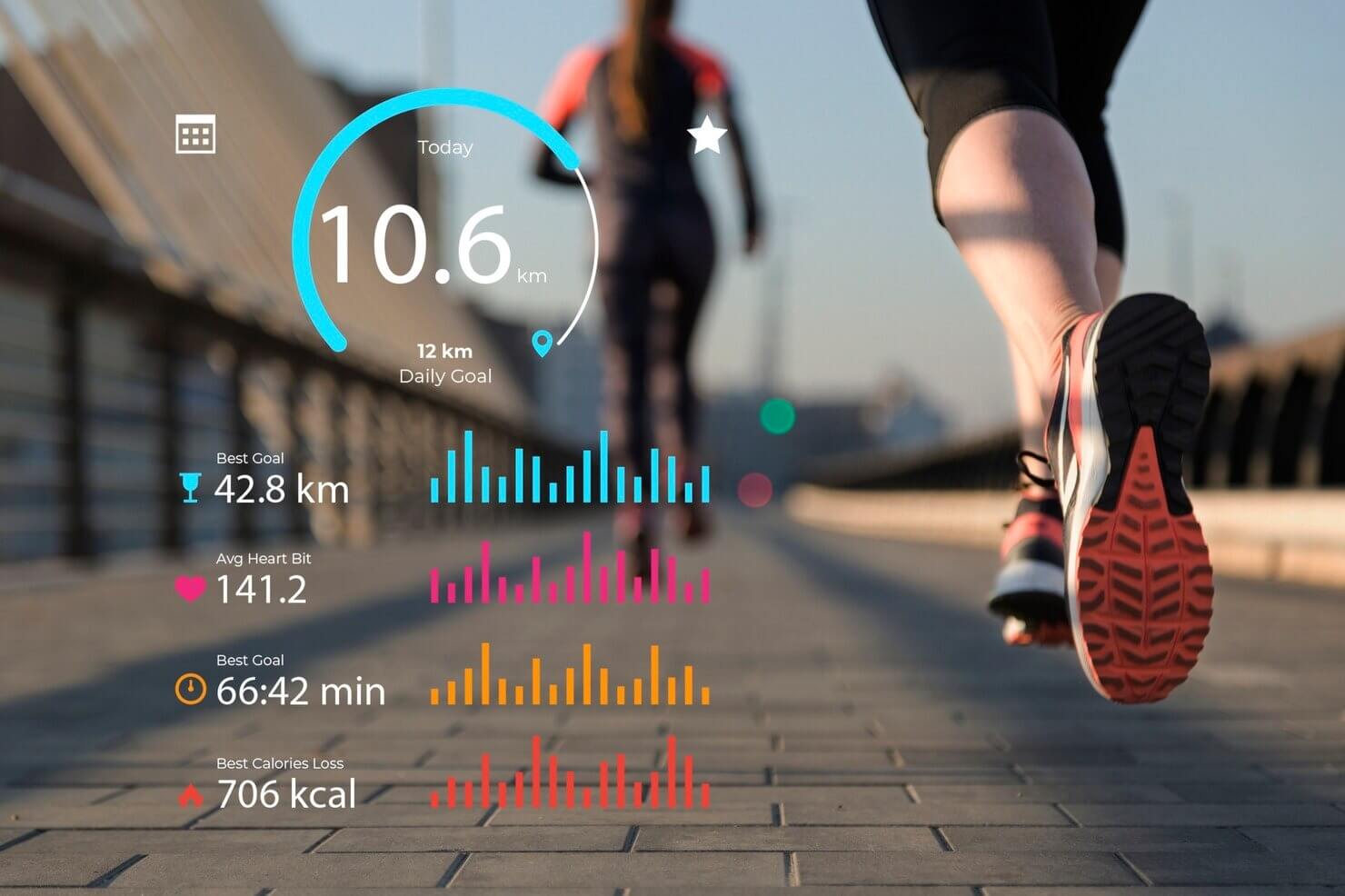The fitness industry has undergone a significant transformation in recent years, with artificial intelligence (AI) becoming a pivotal factor in shaping the way people exercise. AI-powered workouts are changing the game, offering personalized, adaptive, and data-driven fitness solutions that cater to individual needs, goals, and preferences. This technological advancement is making fitness more accessible, efficient, and enjoyable for people of all ages and fitness levels.
In this article, we’ll explore how AI-powered workouts are revolutionizing the fitness industry and why this trend is here to stay.
The Rise of AI in Fitness
AI has infiltrated nearly every aspect of modern life, and fitness is no exception. From wearable devices that track your every movement to virtual trainers that create customized workout routines, AI technology is now a vital part of the fitness ecosystem. This integration is providing new opportunities for personalized workouts, real-time feedback, and improved performance.
In the past, personal trainers and fitness instructors were the primary sources of customized fitness plans. However, the advent of AI has democratized access to these personalized services, allowing individuals to get tailored workout plans from their smartphones or wearable devices. This shift is making fitness more accessible, efficient, and results-driven.
How AI-Powered Workouts Work

AI-powered workouts rely on machine learning algorithms and data analytics to provide users with tailored fitness routines. These systems analyze a vast array of data points, including your fitness level, body type, goals, and even your previous workout performance, to offer a customized plan that evolves as you progress.
Here’s a breakdown of how AI-powered workouts function:
- Data Collection: AI platforms collect data from users through fitness apps, wearable devices, and health tracking features on smartphones. Metrics such as heart rate, calories burned, steps taken, and sleep patterns are monitored.
- Personalization: The collected data is analyzed to create personalized workout plans that match the user’s fitness level, goals (such as weight loss, muscle gain, or improved endurance), and preferences (type of workout, duration, and intensity).
- Real-Time Feedback: During the workout, AI-powered systems provide real-time feedback, correcting form, adjusting intensity, and offering motivation to ensure the user is performing the exercises correctly and efficiently.
- Progress Tracking: AI keeps track of the user’s progress over time, updating workout plans and suggesting new exercises or changes in routine as the user’s fitness improves.
- Adaptability: Unlike static workout routines, AI-powered systems can adjust on the fly based on a user’s performance, fatigue levels, and even external factors like sleep quality. This adaptability ensures users are constantly being challenged without overexertion.
Benefits of AI-Powered Workouts

AI-powered workouts offer a host of benefits that are revolutionizing the way people approach fitness:
1. Personalization at Scale
One of the primary advantages of AI-powered workouts is the ability to provide personalized plans to a large number of users simultaneously. Each individual’s fitness plan is tailored to their specific needs, eliminating the guesswork and ensuring optimal results.
2. Real-Time Adjustments
Unlike traditional workout plans, which remain static regardless of your progress, AI-powered workouts adapt in real-time. Whether you’re struggling with an exercise or performing exceptionally well, the system can adjust the intensity, recommend modifications, or suggest new exercises.
3. Convenience and Accessibility
AI-powered fitness platforms can be accessed from anywhere, whether at home, at the gym, or even while traveling. All you need is your smartphone or wearable device, making fitness routines highly convenient and accessible.
4. Data-Driven Insights
Wearable devices and fitness apps that incorporate AI provide users with comprehensive data insights into their performance. From heart rate monitoring to calorie expenditure, these insights allow users to fine-tune their workouts for maximum efficiency.
5. Reduced Risk of Injury
AI-powered workouts often come equipped with form correction features. These features use motion tracking or real-time feedback to ensure that users are performing exercises correctly, reducing the risk of injury due to improper form.
6. Motivation and Engagement
Many AI-powered fitness platforms integrate gamification elements, such as challenges, rewards, or progress tracking. These features help keep users motivated and engaged, making it easier to stay committed to their fitness goals.
7. Cost-Effective Training
Hiring a personal trainer can be expensive, but AI-powered fitness platforms offer a more affordable alternative. Users can receive the same level of personalization and expertise without the high costs associated with one-on-one training sessions.
AI-Powered Fitness Apps and Platforms to Watch

Several AI-powered fitness apps and platforms are already leading the charge in the fitness industry. Here are a few notable ones:
- Fitbod: This app uses AI to create personalized strength-training plans based on your workout history, goals, and available equipment.
- Peloton: While best known for its live-streamed classes, Peloton incorporates AI to track user performance and suggest personalized improvements.
- Freeletics: Using AI, Freeletics adapts workouts to your fitness level, provides motivational feedback, and tracks progress over time.
- Future: Future pairs users with a remote coach who uses AI data to adjust workout plans, offer motivation, and track progress.
The Future of AI in Fitness

AI’s role in fitness is just beginning. As technology continues to evolve, we can expect even more sophisticated features, such as:
- Virtual Reality (VR) Workouts: Imagine immersive workout experiences where AI-powered avatars guide you through exercises in virtual environments.
- AI-Driven Nutrition Plans: AI could offer personalized meal plans based on your workout performance, metabolism, and dietary preferences, integrating fitness and nutrition seamlessly.
- Advanced Biometrics: AI could analyze more advanced health data, such as oxygen levels and muscle fatigue, providing users with more precise and effective workout recommendations.
With continuous advancements in machine learning, AI-powered fitness solutions will become even more integral to personalized health and wellness.
Conclusion
AI-powered workouts are revolutionizing the fitness landscape by making personalized, data-driven exercise plans accessible to everyone. These systems provide users with real-time feedback, adaptable routines, and comprehensive progress tracking, ensuring efficient, safe, and effective fitness results. As AI technology continues to evolve, the future of fitness looks brighter than ever, offering new opportunities for individuals to reach their health and wellness goals in ways that were once unimaginable.
Frequently Asked Questions (FAQs)
Q1: Can AI-powered workouts replace personal trainers?
AI-powered workouts can offer personalized fitness plans and real-time feedback, but they may lack the human touch and personal motivation a real trainer provides. However, for many people, AI-powered platforms are a cost-effective and convenient alternative to traditional personal training.
Q2: Are AI-powered workouts safe for beginners?
Yes, AI-powered workouts are safe for beginners because they are tailored to each individual’s fitness level. The AI system can adjust the intensity and difficulty based on your performance, ensuring that you don’t overexert yourself.
Q3: Do AI-powered fitness platforms require a lot of equipment?
Many AI-powered platforms provide bodyweight exercises or customizable plans that don’t require equipment. However, if you have access to equipment like dumbbells or resistance bands, the AI can incorporate those into your routine.
Q4: How accurate are AI fitness apps in tracking workouts?
AI fitness apps use advanced algorithms and data from wearable devices to track workouts. While they are generally accurate, factors like the type of wearable device or the exercise performed may influence accuracy.
Q5: Can AI help with workout motivation?
Yes, AI fitness platforms often include motivational features like progress tracking, achievements, and reminders. Some apps even offer virtual coaches that provide feedback and encouragement, helping to keep users motivated throughout their fitness journey.




